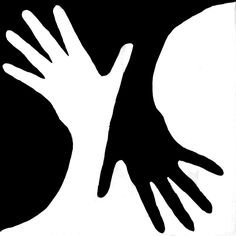
For a toxic person the impulses of the world reach only as far as his feelings. And his life is a reaction to the world. A positive person is responsive. He acts from conscious perception and he is truly responsible for his life.
A strange thing happens when one becomes a responsible being. One no longer needs the world to pull responses out of him.
Whereas a toxic person reacts into the world as an effect, a postive person acts into the world as a cause. His knowledge actually destroys the effects that the toxic person creates with his reactions. His understanding dissolves the reactions of fear, hate, anger, envy, argument and lust for power — as you have seen for yourself when you are understanding. Whereas the toxic person is creator of these reactions, the positive person is destroyer of them. One complicates, the other simplifies.
When you destroy through reaction you leave behind hostility, hate, opposition, war — and more reaction. When you destroy through understanding, for a little while you leave behind peace or love or joy.
Joy should be a response, not a reaction. It is a part of the action which caused it and needs no display. Joy is sensation without an object; in other words, it is not a feeling attached to any notion of good or bad, or any centre.
Using the model of man’s levels of reaction and response, we can see how a toxic person reacts to the possibility of joy. The first reaction is in the body; a noise of some sort, excitement, laughter, handshakes. Then come words: ‘Isn’t it wonderful!’ — the sudden windfall or the birth of a baby — ‘We’ll be so happy now!’ Then attitude: ‘But we’ll have to be sensible with the money’; or ‘We must raise him as a Catholic.’ Then emotion: the imagined feeling of power or pride; or, when opposition to desire is encountered or imagined, a hardening insistence or vengeance — ‘I’ll show him.’
A positive person would not create a reaction but a response of love which he feels within himself and emanates in silence. In the body his joy may appear as a smile, though seldom more than a smile for those around him who do not yet know the bliss of love as pure sensation beyond display.
Joy cannot be celebrated. To celebrate joy by dancing is to enjoy dancing; by drinking to enjoy drinking; by talking to enjoy talking. Let the dancers dance, the feasters feast and the talkers talk — for they are truly a joy in themselves.
But the joy of a marriage, the birth of a child, the love of another is in the silence of your own being, where your need of the world ends — and the world’s need of you begins.
While you want anything in the world you are reacting.
What is the implication of this for you, in your life? It does not mean that you should give up working, eating, buying a car or enjoying yourself. It means you do those things without the desire to do them; and without the desire not to do them. To not desire something is as positive a reaction as to desire it.
If nothing is desired and nothing is not desired there is a state of equilibrium. The result is the act of going to work, eating, enjoyment, buying food or cars, and all the rest of living — without having the terrible fight of reaction when things change, are threatened or come to an end. Reaction occurs when there is a change and as life consists of change the opportunity for reaction occurs every second.
Reaction is the desire to cling to the past or resist the new. It is most noticeable when the change means that something is taken from you which you once desired or now want to hold on to.
You react and suffer according to the strength of your desire. And when you gain something, if you react in joy you can be sure that when change comes again, as it must, you will react in unhappiness. Each reaction in your life is an over-correction of your course, making a future correction inevitable.
Reaction is a striving for certainty. As certainty does not exist in the world, reaction becomes a striving to produce certainty within its own activity. This requires a continual narrowing and reduction of flexibility which appears as frowning watchfulness, exclusion, suppression and rejection. Anything new is soon converted back into the familiar.
This fundamental movement is common to both individuals and society as a whole. The tendency is always to preserve what exists and return to some form of conservatism. Even rebellions are led by reactionaries, and the same law applies. Young rebels become householders. Revolutionaries overturn the Old Order and quickly adopt their own hardline.
In both individual and society, every reaction is initially (and moment to moment) an attempt to hold on to something, whether it be an object, idea or attitude. Once the threat or challenge is over, the person or society tries to respond from the new sense of assurance. But pure response is impossible. A gesture from a position of security is still a reaction of security, an extension and modification of itself. A true response on the other hand is a spontaneous action, with no consideration of anything, not even its own comfort or survival (unless the success depends on those considerations).
love this post i will be featuring it today in my daily pick of hidden gems
Thank you for your appreciation and best wishes.
https://steemit.com/life/@dragonslayer109/daily-pick-of-hidden-gems-22 here is where i will be featuring your post
A poignantly delivered message - thank you for sharing. Upvoted!
Thanks!